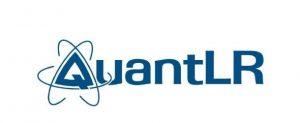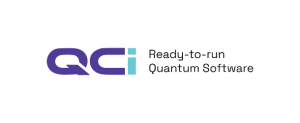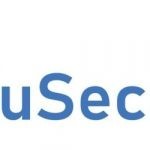Quantum News Briefs, June 17, 2022: Chicago connects city & suburban labs with quantum network, QuantLR’s successful QKD operation with data center, Fortinet® to support Singapore’s quantum-safety program and MORE

In Quantum News Briefs today, we begin with the announcement from Chicago Quantum Exchange that for the first time they’ve connected the city of Chicago and suburban labs with a quantum network using equipment provided by Toshiba. Coverage goes international with Israel’s QuantLR announcing the successful operation of its QKD system with MedOne’s Data Center infrastructure between the cities of Tel Aviv and Petah Tikva. Then to Asia and Singapore’s quantum efforts once again in spotlight with Fortinet®’s recent MOU agreeing to support that city state’s quantum-security efforts. Check out Wells Fargo’s “not engaging with quantum computing not an option” brief and MORE.
Chicago Expands and Activates Quantum Network
 Scientists with the Chicago Quantum Exchange (CQE) at the University of Chicago’s Pritzker School of Molecular Engineering have announced for the first time they’ve connected the city of Chicago and suburban labs with a quantum network—nearly doubling the length of what was already one of the longest in the country. The Chicago network, which will soon be opened to academia and industry, will become one of the nation’s first publicly-available testbeds for quantum security technology.
Scientists with the Chicago Quantum Exchange (CQE) at the University of Chicago’s Pritzker School of Molecular Engineering have announced for the first time they’ve connected the city of Chicago and suburban labs with a quantum network—nearly doubling the length of what was already one of the longest in the country. The Chicago network, which will soon be opened to academia and industry, will become one of the nation’s first publicly-available testbeds for quantum security technology.
The network is now actively running quantum security protocols using technology provided by Toshiba, distributing quantum keys over optic cable at a speed of over 80,000 quantum bits per second between Chicago and the western suburbs. Toshiba’s participation in the project makes the Chicago network a unique collaboration between academia, government and industry.
The new 35-mile (56-kilometer) extension has built upon Argonne National Laboratory’s already 89-mile (144-kilometer) quantum loop, launched in 2020. The total network, announced today, is now composed of six nodes and 124 miles (200 kilometers) of optical fiber—transmitting particles carrying quantum-encoded information between the U.S. Department of Energy’s Argonne National Laboratory in suburban Lemont and two buildings on the South Side of Chicago, one on the UChicago campus and the other at the CQE headquarters in the Hyde Park neighborhood.
*****
Wells Fargo: Not Engaging with Quantum Computing Not an Option
 Wells Fargo was introduced to quantum computing’s potential in 2019. As we started unpacking approaches to post-quantum cryptography and what quantum generally has to offer, it became obvious that there are potential use cases where you could apply quantum to do certain transactions in an exponentially more efficient way,” says Chintan Mehta, CIO for digital technology and innovation at Wells Fargo.
Wells Fargo was introduced to quantum computing’s potential in 2019. As we started unpacking approaches to post-quantum cryptography and what quantum generally has to offer, it became obvious that there are potential use cases where you could apply quantum to do certain transactions in an exponentially more efficient way,” says Chintan Mehta, CIO for digital technology and innovation at Wells Fargo.
Today, Wells Fargo is working with the MIT–IBM research group to explore and test-drive mathematical computations using quantum. Among the experiments are new approaches to vector mathematics and generalized linear algebra. One example use case: Rapid re-calculation pricing for a large book of trades done in parallel and more efficiently using the quantum computing ecosystem. Other use cases in the financial industry include leaning on quantum’s data modeling capabilities to handle the complex data structures on which fraud detection systems are built.
Mehta emphasizes that Wells Fargo is focusing on the utilitarian aspects of quantum computing. “We are participating in quantum research to help validate use cases in the financial services industry that will benefit from quantum computing; we are not doing pure fundamental research,
Because success in quantum computing is checking off a list systematically, Mehta advises companies to engage in a low-intensity but long-term program. “You cannot put all your discretionary spend on this, but do research consistently,” he advises. The payoff is huge but it could be a long time away.
*****
QuantLR Announces Successful Operation of QKD System with MedOne’s Data Center Infrastructure

QuantLR Ltd, an Israel-based Quantum Key Distribution (QKD) company, and MedOne, a leading Israeli data center service provider, have announced the successful operation of QuantLR’s QKD system with MedOne’s Data Center infrastructure between the cities of Tel Aviv and Petah Tikva.
“We are delighted to collaborate with a leading data center service provider such as MedOne. Data Centers are a very important use case for QKD and we see an increasing demand from leading players in this market,” notes Dr. Nitzan Livneh, CTO of QuantLR.
The announcement comes following the recent successful test that was conducted between the MedOne Tel Aviv and MedOne Petah Tikva facilities, over a distance of more than 35km (21.7 miles). Earlier this year QuantLR managed to exchange keys over longer distances.
A single fiber strand was used to carry the quantum information as well as C-band data channels, enabling quantum-safe communication for clients without dark fiber. The system created more than ten 256bit symmetric encryption keys per second, without any flaws.
“Data security has become the most important aspect in a data center offering, and we are planning to be the first data center service provider worldwide that will offer a QKD solution to secure its clients’ data” noted Ronnie Sadeh, CEO of MedOne.
*****
Fortinet® to Support Singapore’s Quest for Quantum-Safe Future

Fortinet®, a global leader in broad, integrated and automated cybersecurity solutions, has announced a collaboration with Singapore’s Quantum Engineering Programme (QEP) to support Singapore’s project. Funded by the National Research Foundation, Singapore (NRF), the NQSN seeks to develop an ultra-secure communications and services infrastructure to safeguard digital transactions against sophisticated cyber threats.
Fortinet’s work with NQSN will support QEP in proof of concepts and jointly explore use cases for quantum-safe communications. Fortinet will provide resources in network security including prototypes that can interface to quantum devices for trials within the NQSN.
Fortinet has demonstrated capabilities to interoperate with a Quantum Key Distribution (QKD) system. Fortinet’s firewalls were able to receive randomly-generated quantum keys, and use them to encrypt data to be sent 20 kilometres remotely using Fortinet IP-VPN (Internet Protocol Virtual Private Network) solutions to provide quantum-safe encryption.
*****
Quantum Computing Inc. Closes Acquisition of QPhoton
 Quantum Computing Inc. (“QCI” or the “Company”) (NASDAQ: QUBT) has announced the successful completion of its previously announced merger agreement to acquire QPhoton, Inc., a quantum photonics innovation company that has developed a quantum photonic system (QPS). The closing of this transaction will enable QCI to deliver the first ready-to-run, broadly accessible and affordable full-stack QPS that can be used by non-quantum experts, anywhere, for real-world business applications. QCI expects to release initial quantum solutions leveraging QPhoton‘s QPS in Q4 2022.
Quantum Computing Inc. (“QCI” or the “Company”) (NASDAQ: QUBT) has announced the successful completion of its previously announced merger agreement to acquire QPhoton, Inc., a quantum photonics innovation company that has developed a quantum photonic system (QPS). The closing of this transaction will enable QCI to deliver the first ready-to-run, broadly accessible and affordable full-stack QPS that can be used by non-quantum experts, anywhere, for real-world business applications. QCI expects to release initial quantum solutions leveraging QPhoton‘s QPS in Q4 2022.
As a result of the transaction, QPhoton becomes a wholly-owned subsidiary of QCI. Dr. Yuping Huang, CEO of QPhoton, the Gallagher associate professor of physics and director of the Center for Quantum Science and Engineering at Stevens Institute of Technology, joins QCI as Chief Quantum Officer as well as a director. “QPhoton is proud to innovate along with QCI to offer the most powerful, user-friendly and cost-effective quantum solutions on the market,” said Dr. Huang. “We intend to deliver powerful quantum solutions for complex, business-critical problems that challenge several areas of industry today, such as logistics and supply chain, fraud detection, biomedical imaging, drug clinical trials, data security and more.”
*****
Sandra K. Helsel, Ph.D. has been researching and reporting on frontier technologies since 1990. She has her Ph.D. from the University of Arizona.



















